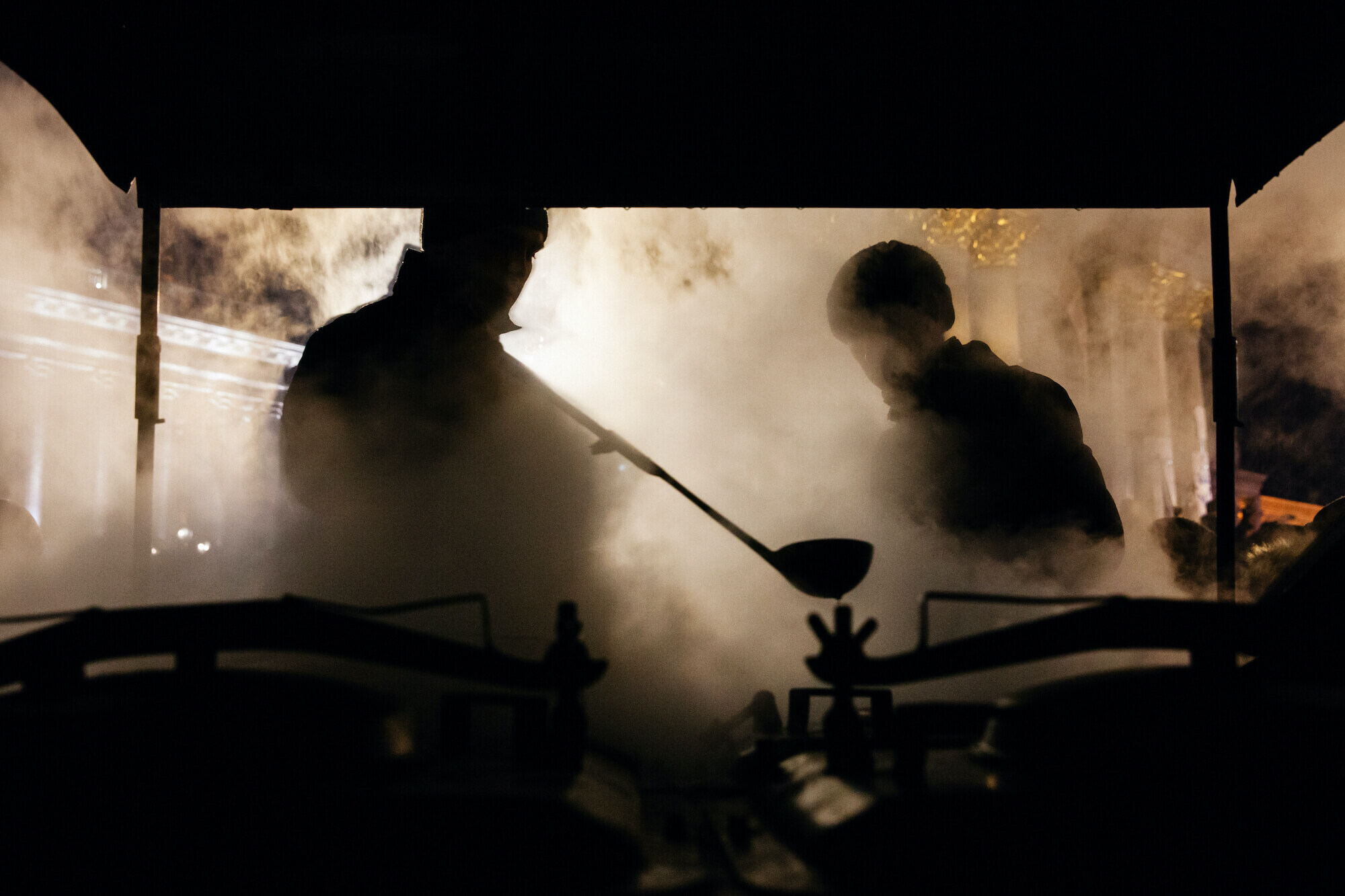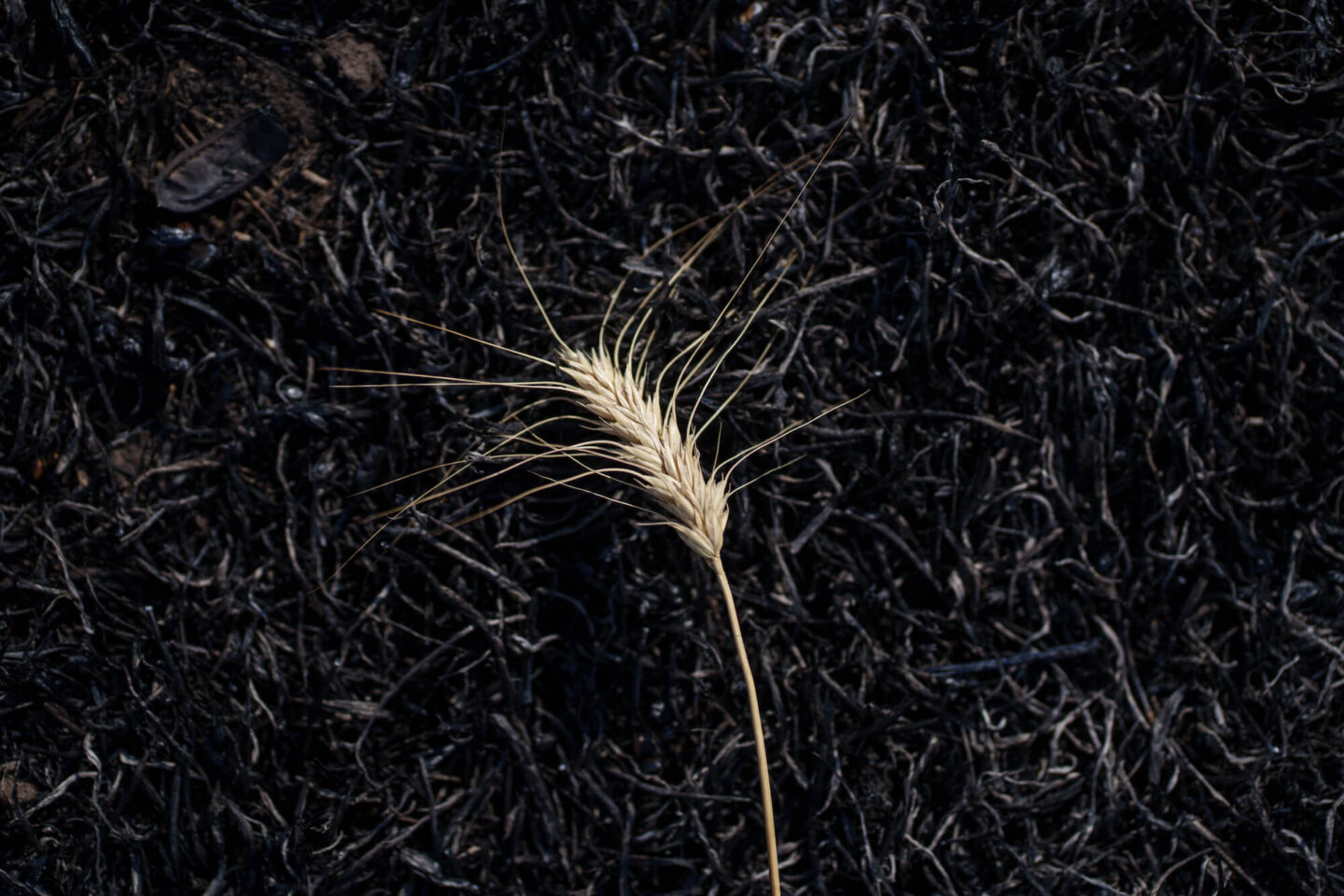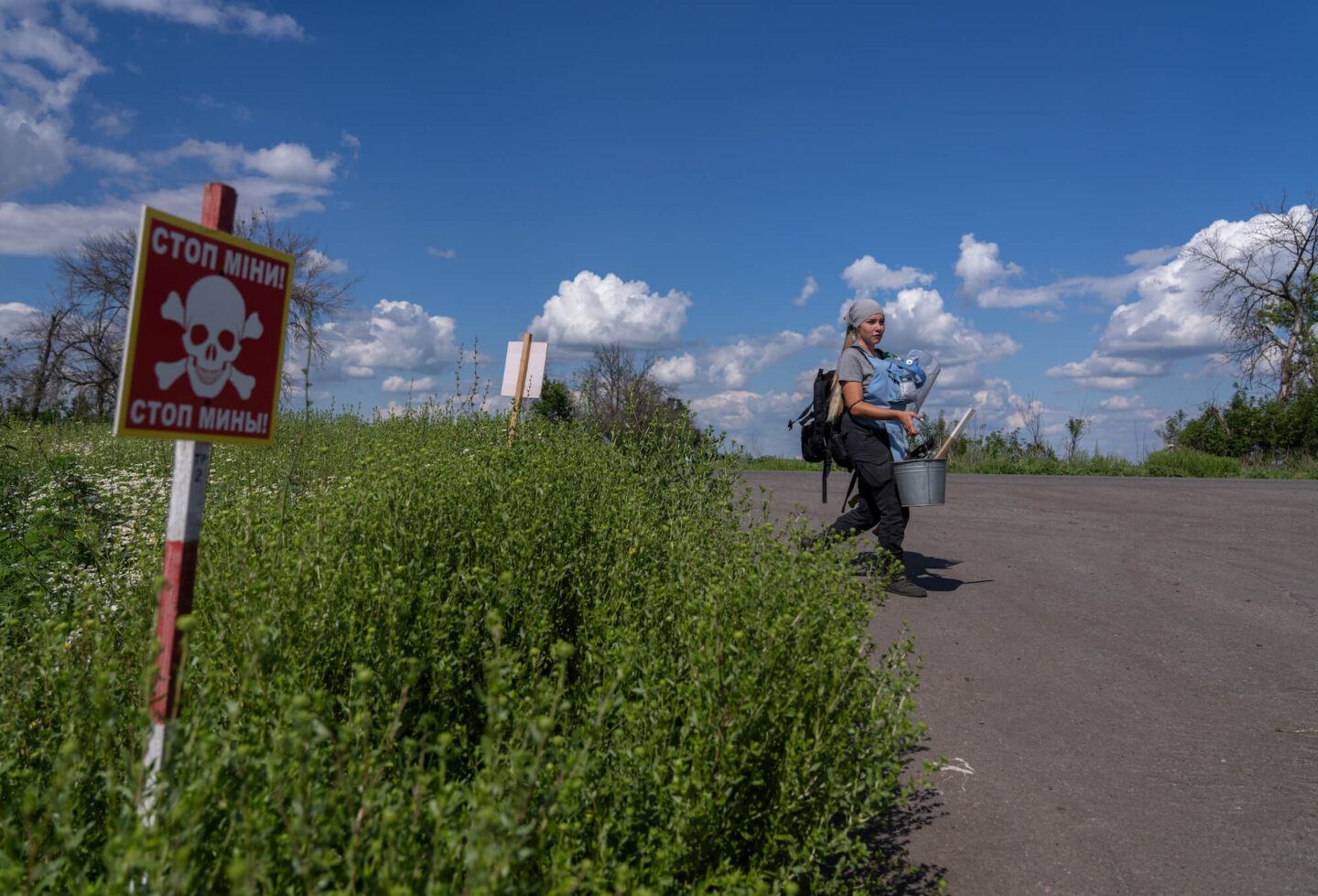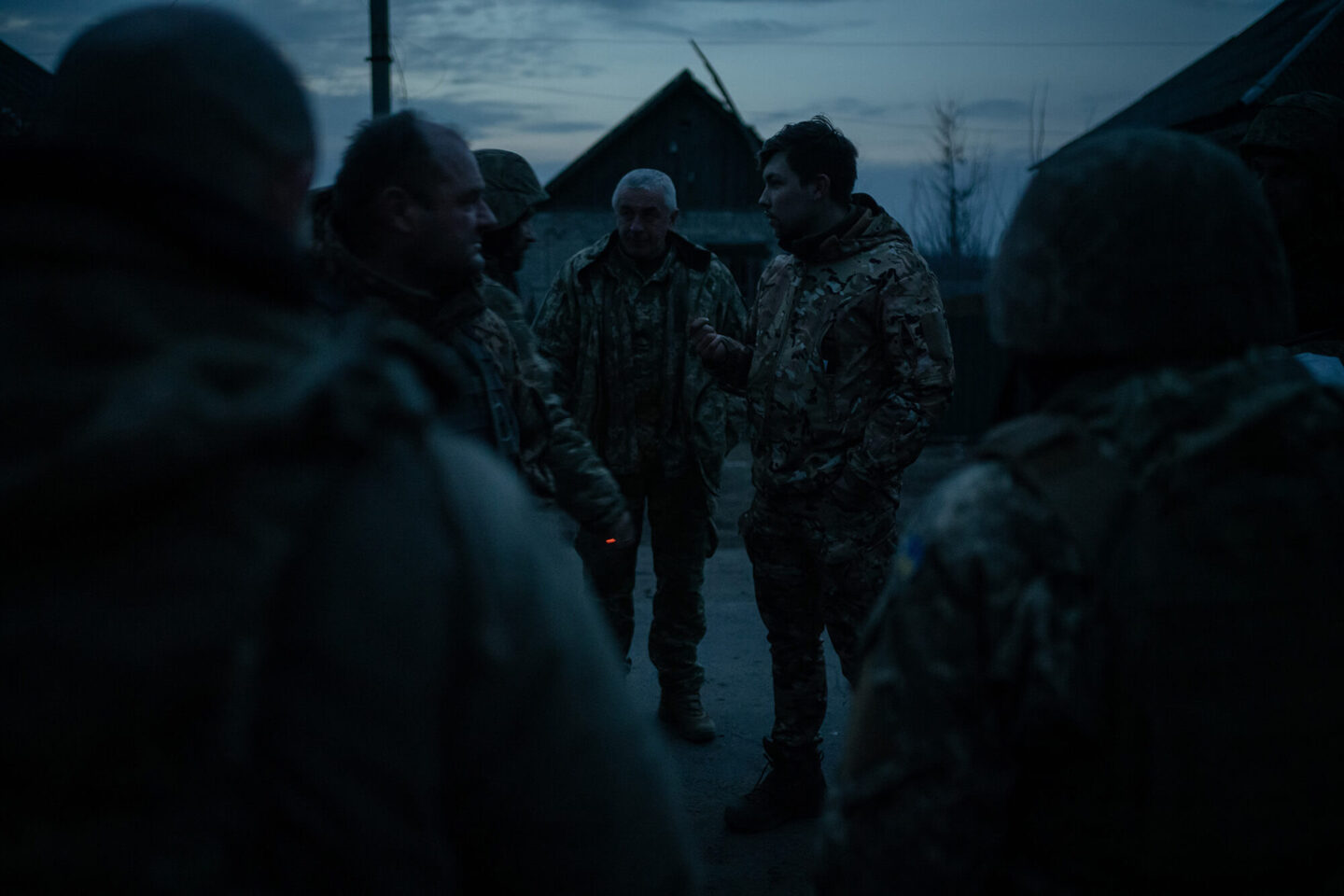“Whenever sociologists are being asked to describe how exactly did society change over the past decade, the first reaction is actually bafflement,” says Tymofii Brik, Rector of the Kyiv School of Economics. “That’s because sociologists study a myriad of parameters: from employment to mental health, from tobacco use to religious affiliation, from political views to pet ownership.” So, what criteria should be used for comparison?
In this joint project by Reporters and KSE, we’ve attempted to put together a collective image of Ukrainians. Taking into account sociological research, interviews of experts in various fields, and personal observations, the authors of the following pieces analyzed changes in Ukrainians over the past decade, that is, from 2014 to 2024. Changes in attitudes, values, preferences, ways to remember the past, and visions of building the future.
In the first part of the article, KSE Rector Tymofii Brik reflects on the paradoxical combination of phenomenal proactiveness and lack of social trust among Ukrainians. In this piece, culinary journalist and graduate student in Memory and Public History Studies, Mariia Banko, reflects on the sandwiches from the Maidan and analyzes projects aimed at preserving culinary heritage.
“Whichever way you would enter Maidan Square, you were greeted by a smiling or tired girl who’d ask: “Would you like a sandwich? How about some hot tea?” Whatever was happening around, the tea and sandwiches were like communion. You’d take communion and go work with everyone else. Food always unites people. During the Maidan protests, food on the Maidan Square was part of the initiation,” recalls one of the Maidan activists, Yuliia Ohorodnyk.
Sandwiches, hot tea, kulish [millet-and-meat porridge — Ed.], and borscht cooked in large stew-pots are gastronomical experiences that are often mentioned in recollections of the Revolution of Dignity participants. Yet, the first thing that’s mentioned is not the taste of food but rather the experience of cooking and eating, the experience of community, and the collective effort behind it.
People were constantly bringing groceries to the hastily set up field kitchens and tent camps. But what might have been chaos turned into an effective operation: participants quickly learned to work together for the good of the cause.
Oleksandr Zakletskyi, a photographer, a journalist, and now a soldier, recalls how an elderly woman approached him on Maidan Square. She didn’t have the strength or stamina to join in the protests, but she wanted to do at least something. So, she just brought a pot of boiled potatoes with onions. He says that right there, he clearly felt “the breath of God”: if God is love, then for him, these people with sandwiches in one hand and Molotov cocktails in the other were the embodiment of this Love.
Following the victory of the Maidan protests, Ukrainians managed to preserve this experience of freedom and lateral organizational structure. This experience saw food become a medium of mutual support, unity, and love, not an instrument of coercion or control like it was in the Soviet Union era.
Over the following few years, there have been many changes, but the idea of food that unites will be a cornerstone for various communities in Ukrainian society: restaurateurs and volunteers, scientists and chefs.
Tips for soldiers, not servers
Of course, the restaurant landscape of Ukraine before the Maidan was not a barren desert. There were large food chains like “Kozyrna Karta” (“Trump card”) and “Svitova Karta” (“World Map”). Eric Aigner managed to create a dozen popular eateries under the Eric’s Family company, which eventually spawned the chain “Liubov and Golod” (“Love and Hunger”). Both McDonald’s and “Puzata Hata” (“Pot-bellied cottage”) have already become a staple.
By then, “The Kryivka” (“The Hideout”) in Lviv has been welcoming visitors for several years already. And all this time, to enter it, one must give a proper password—an old-school greeting of uprising—”Glory to Ukraine!”
In Odesa, back then and today, chefs at the “Dacha” (“The Summer Cottage”) were cooking up all sorts of dishes with Black Sea sprats. In Kyiv, Dmytro Borysov garnered first lines to his establishments “Barsuk”(“Badger”) “Gastrorock” and a new restaurant, “Kanapa” (“The Divan”), boasting “molecular Ukrainian cuisine.” And “Chashka” (“The Cup”), located on Bessarabka, had fancy flat white available to order.
Of course, the list could go on and on. But after 2014, we saw an explosion of new names, concepts, and approaches. Not just in big cities, with populations over a million, but almost anywhere. This momentum continued until 2022 (with some slowing down during the pandemic) and led to significant changes in this sector.
Restaurateurs who managed to create successful projects even before the Maidan revolution have brought many new concepts onto the market. Among them are Andrii Khudo (!Fest), Dmytro Zaporozhets (First Line), Dmytro Borysov (GastroFamily) Saveliy Libkin, Vardkes Arzumanian.
Franchising has accelerated the scaling of businesses. Right now, two Ukrainian companies have surpassed McDonald’s in terms of the number of opened establishments: Lviv Croissants with 153 eateries and !Fest holding with 105 restaurants.
Furthermore, small restaurants started popping up. Their draw was their own chefs with particular styles and visions of cuisine. The idea of “bistronomy” gained traction: casual and affordable establishments with great attention to taste and quality sans crispy white tablecloths.
The embodiment of this idea in Odesa is “Dizengoff,” headed by Nika Lozovska. Here, they still prepare complex gourmet dishes from the groceries bought that morning at Pryvoz, a famous local farmer’s market. In doing so, they connect local features to global context.
There was a growing openness in certain segments of the public to new flavors, with ramen, pho, bao, and kimchi transitioning from exotic dishes to everyday food. Zhenia Mykhailenko started out with a small project, “Noodles vs. Marketing.” The ramen shop in a basement somewhere in Pechersky’s district of Kyiv would later evolve into the FVSM chain. Zhenia and his wife would head Dumbledore’s Army, a volunteer initiative that provides food for many Ukrainian soldiers.
Myron Spolskyi, a public figure and entrepreneur who opened one of the first pizza parlors in Ukraine back in 1992, recalls that it was after the Maidan revolution that he first felt real competition: both high-quality pizzerias and simply vibrant and visit-worthy conceptual establishments began to pop up here, there, and everywhere.
It was not only the establishment of different concepts and national cuisines but also completely new formats in terms of business models. For example, at the end of 2014, the first public restaurant, “Urban Space 100,” opened in Ivano-Frankivsk: 100 people invested $1000 each to create an establishment that would allocate 80% of its profits to projects that contribute to the development of the city.
Roman Tugashev had great success with the Street Food Festival held at the Platforma art factory, a revitalized space of Darnytsia Silk Factory. Later on, he opened “The Bukhta Food Station,” an open-air food court. In Odesa, Alex Cooper launched the highly successful “City Food Market,” home of 17 dining venues on the grounds of an old movie theater.
Ukrainian gastronomy scene was taking its first steps toward integration into the global context. The chef congresses Fontegro, RestArt, and Creative Chefs Summit brought in top-tier names. Ukrainian chefs took part in the World Gourmet Summit and competed in the International Exhibition of Culinary Arts (also known as the Culinary Olympics or IKA) and events similar to S Pellegrino Young Chef.
Moreover, in 2021, a national qualifying competition was held to select chefs who would participate in the European finals of the world’s most prestigious and influential culinary competition, Bocuse d’Or. Russia’s full-scale invasion interrupted these plans.
Granted, it wasn’t a Michelin Star award, but in 2019, the Michelin Guide website featured articles about Ukrainian restaurants for the first time. Publications like The Independent recognized Kyiv as one of the best tourist destinations in Europe precisely because of its numerous excellent and affordable eateries.
Two more aspects merit mention with regard to the development of the restaurant business post-2014, namely Crimean Tatar cuisine and veteran-owned businesses. Both of these emerged in the wake of the Russian aggression against Ukraine.
Mustafa Dzhemilev estimates that about 10,000 Crimean Tatars have relocated to Kyiv alone since the annexation of Crimea. For some of them, opening their own eatery became both a way to earn a living and an opportunity to share about Crimea in a universally understood language—the language of flavors.
That’s what Asan Budzhurov did—opened up a small stand, “Sofra,” near Zhytniy Market and, with his dad, cooked chebureky [Crimean Tatar çibörek often known by the Russian term cheburek (chebureki for plural) — Ed.] These deep-fried turnovers with minced meat filling were so delicious that people flocked to buy them. Now “Sofra” has several locations throughout Kyiv.
Lerane Khaibullaieva opened “Krymskyi Dvoryk” (“Crimean Courtyard”) in Irpin, Kyiv’s suburb. Later on, after the full-scale invasion, she was forced to relocate once again and start her business from square one in Lviv.
“Musafir,” the only restaurant in Bakhchysarai that proudly flew the Ukrainian flag even after Russians occupied Crimea, was shut down. Children of the original mastermind behind it, Dilyara Seitvelieva, opened a project in Kyiv. It quickly became a landmark not only for the community of Crimean Tatars but also for people with strong civic stance. The story of this establishment, the pressures it faced, and its rebirth are reflected in the book “Kitchen of Terror” by Polish journalist Witold Szabłowski.
One of the outstanding representatives of veteran business is the Veterano Pizza chain. Leonid Ostaltsov not only opened a business that employed veterans but also launched a franchise to enable ATO vets to open and run their own joints. Alongside it, a coffee shop chain called Veterano Coffee was launched.
In May of 2022, a cozy eatery, “Veterano Brownie,” that had been serving customers for a few years in Kyiv’s Podil district, was sold bit by bit online. Roman Nabozhniak, cofounder and soldier, did so to raise money in 26 hrs for a drone/UAV.
Of course, it would be a stretch to describe the Ukrainian restaurant industry as having no issues before 2022. There were plenty of those – from undocumented employment and tax evasion to involvement of Russian money (for example, the Bulldozer chain that swiftly transformed into Enjoy Group after its assets were seized).
Another oversimplification would be a claim that restaurants have become a part of everyday life and have changed the eating habits of a large chunk of society.
According to surveys, in 2017, Ukraine still ranked as one of the European countries with the most time spent cooking at home (15 hours per week for women, 9 hours for men). So, for most people, going to a restaurant was still a special occasion, not a substitute for a home-cooked meal.
Despite all this, the restaurant industry in Ukraine in 2014-2022 was a vibrant, diverse phenomenon that drew recognition around the world, generating new approaches and ideas and forming communities with common values. And even the pandemic, which forced into closer many iconic establishments around the world, slowed down but did not stop this process.
Nor did a full-scale invasion stop it. Even though now Ukrainian restaurateurs have to overcome challenges that their counterparts around the world rarely or never face, they still push forward.
In March-May 2022, thousands of establishments across Ukraine were turned into charity kitchens. The experience of the Maidan came in handy for many—not just experience in the grassroots organization of complex production processes but also the experience of trust.
Vocational group chats were buzzing with messages. Owners willingly gave keys to complete strangers if those could get to the premises and distribute groceries to volunteers.
Restaurant basements were turned into makeshift bomb shelters for neighbors. Coffee shops that continued to serve customers even during shelling became hubs of “normal life” (or the semblance of it) in the midst of grief and fear.
Bustling establishments are often used as proof that there are cities in Ukraine “where seemingly there is no war.” At the same time, there’s no mention of coffee shops only a few miles off the front lines remaining open for business.
Ria Café serves sushi and pizza daily. This is the same place where 13 people were killed by a Russian missile strike: employees and patrons, including writer Viktoria Amelina. In just three months, this café was rebuilt.
What some might interpret as a sign of indifference is actually a sign of vitality. Ukrainians will strive and live to their very last gasp. Pushing through pain and fury, they will carry on doing what they do well.
There’s one photo from Mykolaiv that often haunts me. Out of the window of the “California Republic” restaurant, a fire is visible—shelling set a nearby cooking oil container ablaze. Yet the cook continues to make food on the grill because he can’t let down people waiting for food. Stories like this abound.
After the full-scale invasion began, a number of new eateries opened in Kharkiv: from the pop-up restaurant “Trypichchia” to the bakery “Franyk,” damaged by a missile attack in the winter of 2023 but already welcoming patrons again.
Neither disruption in water supply, blackouts, or ballistic missile strikes can shut Ukrainian eateries down. Leaving hometown is only a matter of last resort. And leaving only means starting over in a new place.
Take, for example, Maksym Pustakov from Mariupol, who lost pretty much everything he had. But shortly after, in April of 2022, he opened a tiny shawarma stand in Kyiv’s Troieshchyna district, and two years later, he’s now the owner of a restaurant chain.
Many a restaurant crew has coworkers serving in the army. Their colleagues hold fundraisers for accouterments and UAV drones for their units. Aside from tips for servers, now “tips for soldiers” are a thing: any amount that’s donated to a dedicated fundraising account set up by the restaurant.
Many restaurateurs, chefs, and bartenders have joined the army. There are also those who will never come back, having given their all in defense of the country. Ivan Chekanyuk, call sign Kotyhoroshko, from “Pizza Bro,” Denys Galushko from “Kozachok,” and Andriy Gudyma from “Re:Bro.” Regrettably, this list is far from exhaustive.
A whole new form of commemoration has emerged: establishing eateries in honor of fallen defenders. In Lviv, friends opened “Respublika Sadu” (“Republic of the Garden”) in memory of Dmytro Pashchuk. In Kharkiv, a mother set up a coffee shop in honor of her fallen son, Andriy Vavilov. She named it after his call sign: “Palomnyk” (“Pilgrim”).
Vast table with room for everyone
Over the past decade, not only has the restaurant sector changed, but our understanding of national cuisine has also changed. There is a demand for exploration of our own identity. Particularly through the understanding of gastronomic traditions. This anachronistic anti-colonial war that Ukraine is forced to wage to defend independence also requires the decolonization of culinary practices.
In these attempts, we sometimes get caught in the trap of becoming a sort of a hybrid (for example, a website could concurrently feature articles like Never cook Soviet dishes for the New Year again and How to make olivier salad: the touchstone of New Year feast). Sometimes, trying to find the point of reference, we accept an ethnographic version of Ukrainian cuisine from the mid-19th century as a standard. In doing so, we often ignore everything that does not fit into this framework, from the baroque cuisine of Hetman’s banquets to the diverse cuisine of 20th-century Ukrainian cities.
Relationships with food lie at the intersection of the private and the public, and only a long and painful path of transformation can bring about needed changes. I don’t know when or how we’ll be making that journey, but I would like to propose a few starting points that would help us along the way: systems research and embracing diversity.
Heritage: who and how explores Ukrainian cuisine
The path to understanding national cuisine should begin with a lot of research. People with considerable media influence, bloggers with millions of followers, are now discovering various facets of Ukrainian culinary culture for themselves and their huge audiences. Still, it would be appropriate to mention, at least in passing, a number of important projects that have been researching and preserving gastronomic heritage over the past decade.
Olena Braichenko founded the research and education project “Їzhakultura” (“FoodCulture”). Using food as a medium, she shares a wealth of insights about our political, social, and cultural history. Out of the efforts of Olena Braichenko, Maryna Hrymych, and other researchers and chefs came the award-winning book translated into other languages, Ukraine. Food and History. It’s not just a research and an exploration of Ukrainian cuisine but also a powerful tool in cultural diplomacy.
The same publishing house, Їzhak, published the book Crimean Tatar Cuisine, based on the results of Olena Soboleva’s many expeditions.
Food writer and anthropologist Marianna Dushar is better recognized as her blogging alter ego, Pani Stefa. She created the Seeds&Roots project, which has collected many rare cookbooks and artifacts related to the culinary experience of the Ukrainian diaspora in Canada and the United States.
She also wrote the accompanying notes to the new edition of Olga Franko’s First Ukrainian General Practical Cuisine. This culinary bestseller by Ivan Franko’s daughter-in-law was first published in Kolomyia in 1929. Now Olga Franko’s granddaughter and great-granddaughters are working on the project “Practical Cuisine. Forgotten and New” project: they reproduce recipes from the book and add historical commentary and family stories.
The Institute of Galician Cuisine (formerly the Club of Galician Cuisine) has been active for over a decade. Recently, its chairman, Ihor Lylo, together with Marianna Dushar, published an incredible study based on the records of the House of Lubomirski, Noble Cuisine of Galicia. Oleksiy Sokyrko authored a landmark work, Culinary Journey to the Hetmanate. Roman Toder has been working for over a decade on his book High Cuisine, which is dedicated to the gastronomic traditions of Transcarpathia.
Larysa Latypova and her project “Original Ukrainian Cuisine” republish cookbooks that are more than a hundred years old. From these books, we learn that Ukrainian women in the early 20th century did not cook kvasha, but rather goose roulade, carbonades and mortadella, pear sorbet, almond crumb cakes, and desserts with rose water and angel’s bitters.
Inna Tilnova and the “Baba Yelka” project record local recipes during expeditions to villages. With the help of crowdfunding, they published the book Delicious Kropyvnytskyi Oblast, a collection of “living history” and “culinary dialect words.”
Olena Pavlova studies the gastronomic heritage of Podillia, Olena Shcherban investigates that of Poltava, and Larysa Tytykalo focuses on Bessarabia…
Olena Stiazhkina wrote an incredible piece called The Taste of the Soviet Union. It may seem like a book about people’s food in the 1960s and 1980s, but in fact, it is about the impossibility of freedom. It is also about the Soviet that does not die because it is not properly processed.
This is another list that I have to keep to just a few names, although it could be much longer. However, even a few projects and dedicated people, both professional and passionate, point to the course of the movement.
It is through regional peculiarities, through the study of different geographical and chronological dimensions of the gastronomic tradition, that the essence of Ukrainian cuisine can be felt, understood, and interpreted anew.
This path is much longer than the creation of a codified canon, a list of “allowed dishes,” and recommendations like “Now everyone ought to make ‘shpundra’ instead of ‘herring under a fur coat’ for the New Year.” However, it provides a way to unite Ukrainian society through awareness and acceptance of differences rather than dividing Ukrainians into proper and not-so-proper.
Not only borscht: a diverse gastronomic heritage
In 2020, borscht was included in the National List of Elements of the Intangible Cultural Heritage of Ukraine, and two years later, it was included in the UNESCO Representative List of the Intangible Cultural Heritage of Humanity. Both events would not have been possible without the efforts of Yevhen Klopotenko, who has been consistently and diligently promoting borsch on the international scene for years. And that deserves a ton of respect.
The recognition of borscht culture as a heritage of humanity was presented by many as a “victory in the battle for borscht with Russia.” This is a certain simplification: such recognition does not imply “appropriation” (“borscht is Ukrainian and no one else’s”), but rather acknowledges a widespread and historically rooted tradition that needs immediate protection. In the case of borscht, the need for protection is obvious: the bearers of the tradition are being killed by Russia every day.
The issue of the appropriation of Ukrainian cultural heritage still requires analysis so that when we communicate with the world, we can explain the mechanisms and colonial practices behind it and not just cry out about the theft. It is a long, difficult, and painful road, but dissecting colonial practices is not only a way to get back what is ours but also a way to guard against thoughtlessly replicating colonial practices ourselves. For example, with regard to the dozens of different ethnic groups living on the territory of Ukraine and their cultures.
One of the main gastronomic trends of our time is attention and respect for local diversity, research and popularization, and highlighting the culinary practices of different communities. A lot has been done over the past decade. The list of intangible heritage has been supplemented by dozens of gastronomic entries. And each of these represents a lively culinary tradition that deserves respect and recognition: Crimean Tatar coffee, Yavoriv pie, Bilyaivka soup, placinta from the Frumushyka Valley, and others.
Meanwhile, the “geographical indications” project and the creation of local gastronomic brands have been underway for several years. While the recognition of a certain culinary practice as part of the intangible heritage is mostly a matter of history, this field involves both business engagement and legislative alignment.
Everyone knows that champagne is not just any sparkling wine, but wine produced in the Champagne region using a precise, standardized technology that guarantees quality. This is exactly what geographical indications are about. By joining the project, Ukraine has committed to refrain from calling goods produced on our territory champagne, cognac, parmesan, or feta. Instead, it got the opportunity to launch its own local gastronomic brands that will be recognized throughout Europe.
The first goods to receive a certificate of registration of the right to use the geographical indication were “Hutsul sheep bryndzya” and “Hutsul cow bryndza”. For instance, Hutsul sheep bryndzya can only be called a product made from the milk of Ukrainian Carpathian sheep that graze on high mountain meadows for at least 120 days in summer. Furthermore, there are numerous requirements concerning production technology.
But it was not in vain. The power of a brand name worked: the price of Hutsul sheep bryndzya increased tenfold. Demand has also increased. This allowed local producers to earn more profit and invest in the development of the community.
Kherson watermelon, wines of Danube Bessarabia and wines of Lake Yalpug, wine and lamb from Frumushyka Nova, Transcarpathian wine, Transcarpathian honey, Shabag and Asha Abag wines are next in line for such certificates.
The history of Melitopol cherries is heartbreaking. They were third to be recognized as a Ukrainian local gastronomic brand by European legislation. Now Russia is presenting the seized sweet cherries from Melitopol at economic forums and at whatever world fairs it has access to. Another attempt at appropriation, another brazen crime. Another piece of heritage that we need to get back. Along with thousands of others.
Sometimes, when I dream of victory, I imagine a big table with enough room for everything: Melitopol cherries and Kherson watermelon, Avdiivka cereals and Opishnia porridge, chebureki from Crimea, Mariupol, and Volnovakha, Lviv cheese cake, Bessarabian placinta, varenyky ‘with sand’, and three hundred kinds of borscht. This envisioned table stretches beyond the horizon. And everyone who feels Ukrainian will find at it both a safe place to be and a dish to their liking.
Translation — Marichka Androshchuk
§§§
[The translation of this publication was compiled with the support of the European Union and the International Renaissance Foundation within the framework “European Renaissance of Ukraine” project. Its content is the exclusive responsibility of the authors and does not necessarily reflect the views of the European Union and the International Renaissance Foundation]





